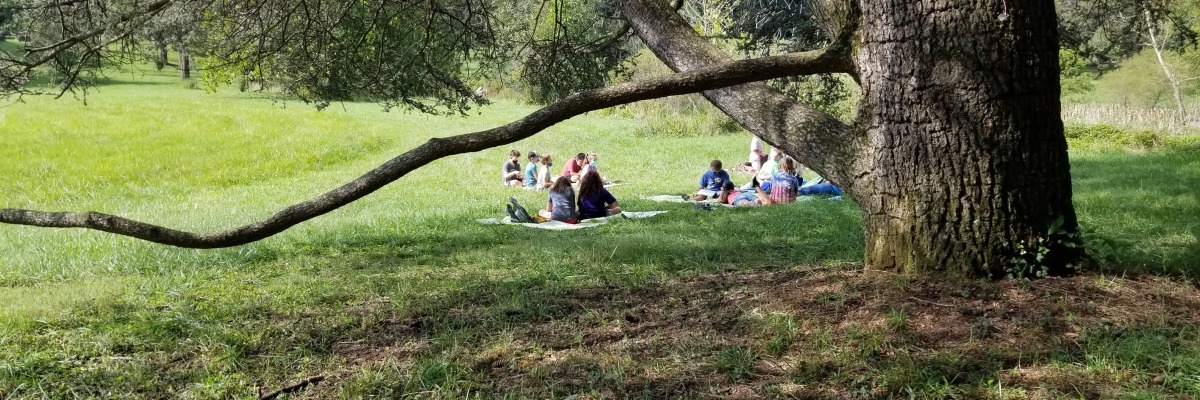Grade 4 Project. All fourth-grade students in Frederick County Public Schools engage in a year-long meaningful watershed educational experience. During field experiences, teachers and students develop skills and content knowledge about watershed science that they take back to the schools and schoolyards to develop a school-based action project.
Driving Question: How can I, along with my family and community, positively affect our watershed?
Project Elements
Issue Investigation- What are some impacts of land use and erosion on the watershed? Students identify possible issues in their local watersheds and then take action to improve or remedy these watershed issues.
Field Experiences- Students visit Blandy twice a year, once in the fall and once in the spring. During each visit, they conduct experiments and observations to develop an understanding of our connections to the Chesapeake Bay Watershed and how we can positively affect it.
Click on the links below for our field investigation lesson plans.
Fall
Erosion Models: Students use models of two types of soil surfaces to investigate the phenomena of erosion and runoff |
Wetland Habitat Investigation: Students investigate a wetland habitat to learn about native wetland organisms, their interrelationships, and their interactions. |
Land Use Analysis: Students conduct field observations of water flow over several sites at Blandy, land use surrounding the site, and consider the land use impacts on the watershed system. |
Resource Use Assessment/Report Card Students assess how various resources are used and managed in and around a building and determine whether the resource is managed well. Based on their assessments, they make recommendations for improving resource use. |
Spring
Turbidity: Engineering a Solution: Students design and engineer a filtering system to remove sediment from water. |
Wetland Organism Investigation: Students determine if an organism’s life needs can be met in a wetland habitat. Students then infer how the organism may be affected by soil erosion and pollution. |
Watershed Models: Students build a model to explore watershed characteristics and use the model to learn how landscape characteristics determine the flow of the water in a watershed. |
Water Cycle Journey: Students simulate the movement of water within the water cycle, focusing on our region and ecology. |
SEPS and Big Idea Tie-in for FCPS MWEE Spring 2023
Action Project- Students conduct Schoolyard Report Cards at the home campuses. They use data and information collected to identify an area of improvement at their school or in their schoolyard. Action projects will vary based on student choice and teacher guidance.






